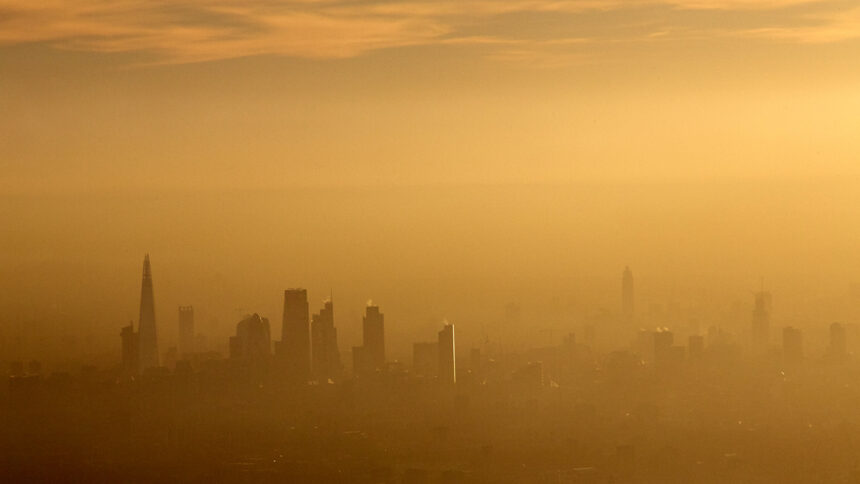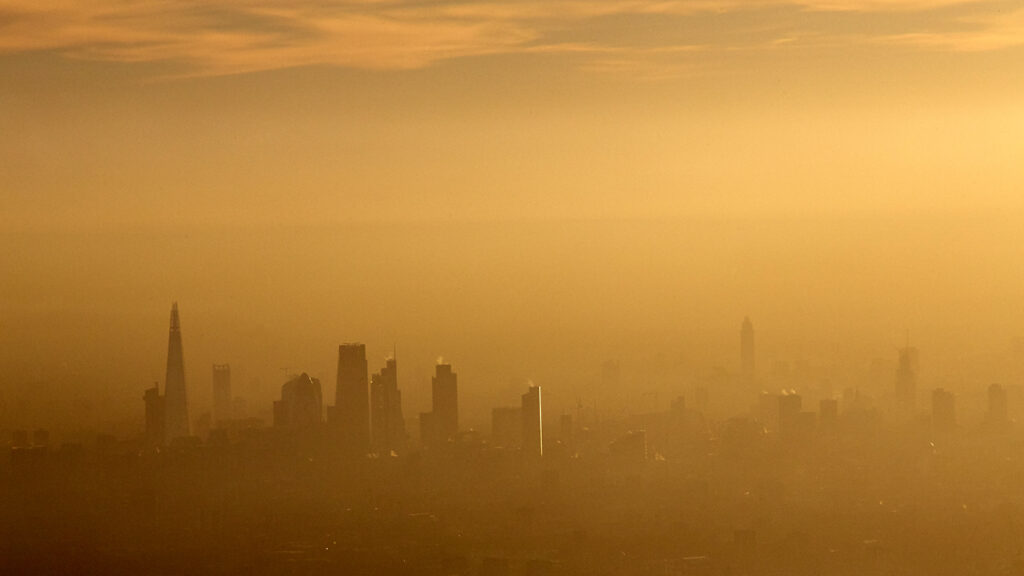

The risk of dementia is greater among people in regions of the US with high levels of a certain type of air pollution, particularly from agriculture and wildfires, according to a new study published in the journal JAMA Internal Medicine.
In a data analysis of 28,000 older adult survey respondents in the Health and Retirement Study over 18 years, researchers discovered that 15% developed dementia — and all lived in areas with higher levels of particle pollution compared with those who did not develop dementia, according to the study.
The study from the University of Michigan School of Public Health is the first on potential effects of particle pollution from different emission sources on dementia in the United States, the researchers said.
Wildfires and agriculture, they found, release a range of harmful emissions at high concentrations. The results point to a “strong likelihood” that those two sources of air pollution need to be more closely studied and monitored for their risks to public health, specifically dementia.
The findings come as poor air quality alerts reached a record number this year, due in large part to smoke from Canadian wildfires, as well as the recent wildfire disaster on Maui in Hawaii. In addition to irritation to throats and eyes, as well as breathing difficulties, wildfire smoke may take a toll on the brain.
“We saw in our research that all airborne particles increased the risk of dementia, but those generated by agricultural settings and wildfires seemed to be especially toxic for the brain,” Sara Adar, associate chair of the Department of Epidemiology, said in a release. “Our findings indicate that lowering levels of particulate matter air pollution, even in a relatively clean country like the United States, may reduce the number of people developing dementia in late life.”
Researchers theorized that tiny pollution particles could be entering the brain through the nose and causing neuronal cell death linked to dementia. Another possibility is that particle pollution is changing inflammatory proteins that act on the brain.
Wildfires are thought to contribute up to 25% of fine particulate matter exposures over a year across the US, and as much as 50% in some western regions of the country, according to the authors.
“While individual wildfires may be short-lived, these events are becoming more frequent in our communities due to warmer temperatures, drier conditions and longer fire seasons,” Adar said. “As we’ve seen, wildfire smoke can also travel very far distances.”
In addition to dementia, particle pollution causes heart conditions and vascular problems, which can both be a risk for Alzheimer’s disease and dementia.
“Given that the development of dementia could take a long time, this study mainly aimed to provide evidence for policymakers to reduce exposures to these sources of emissions,” said Boya Zhang, a research fellow at the University of Michigan School of Public Health.
The study was funded by the National Institute of Environmental Health Sciences and the National Institute of Aging.
Senior living associations on standby for disaster aid
The Maui wildfire and Tropical Storm Hilary’s effects on California have national senior living associations, and their state counterparts, on standby for aid.
Argentum is working with the Maui County Office on Aging and Aging and Disability Resource Center on older adult and provider needs as a result of the deadliest wildfire in US history affecting the island.
“We have offered our assistance to local officials and will provide information on requests as soon as determined by officials on the ground,” Argentum’s Maggie Elehwany told McKnight’s Senior Living.
The California Assisted Living Association, Argentum’s state partner, said that it is ready to assist with evacuation coordination, if necessary, due to Tropical Storm Hilary. CALA said it has “robust” emergency preparedness requirements, which CALA helped developed.
A LeadingAge spokesperson, similarly, told McKnight’s Senior Living that it stands ready to support its members as they “continue to provide quality care to their communities during this difficult time.”


